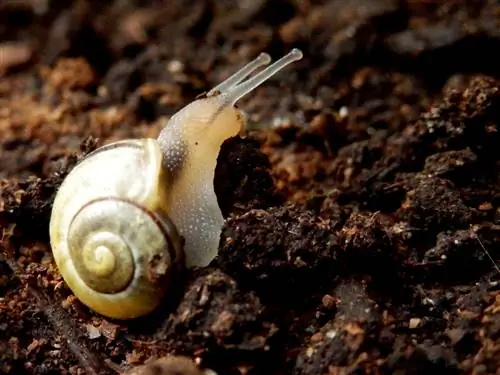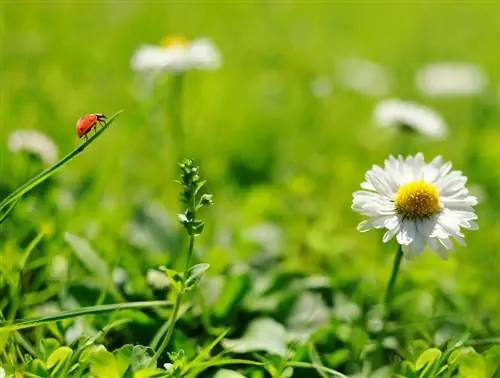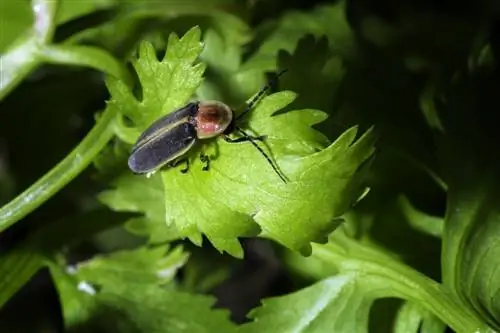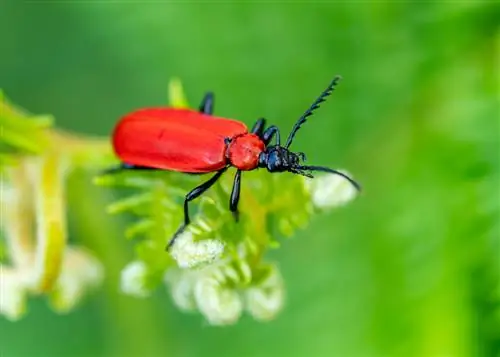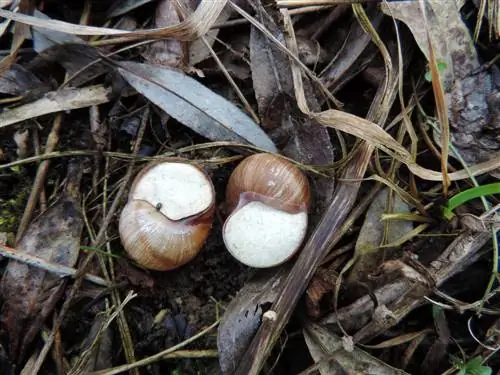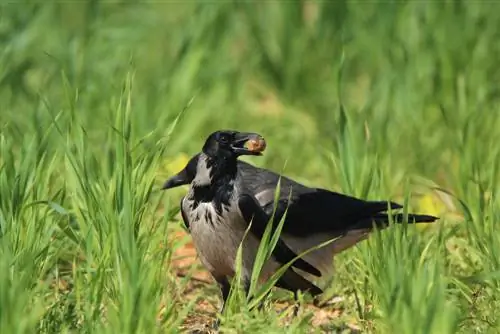- Author admin [email protected].
- Public 2023-12-16 16:46.
- Last modified 2025-01-23 11:21.
Snails are among the most feared pests in compost. But not every species causes harm. Simple measures help against eggs in the substrate.
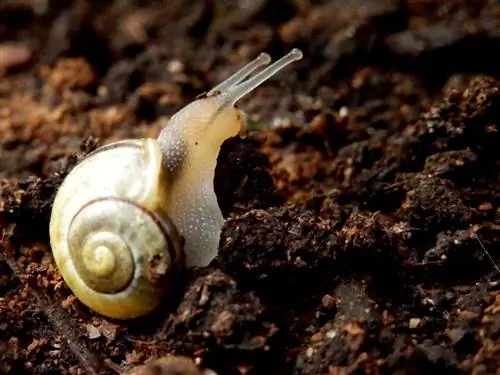
How can you fight snails and their eggs in compost?
Snails in compost can act as pests or beneficial insects, depending on the species. To prevent snail eggs in compost, you should locate clutches, turn compost regularly and sieve finished compost before spreading it on beds.
Useful and harmful species
Shell snails like the ribbon snail do not cause any problems in the garden. They feed largely on dead plant parts. The protected Roman snail proves to be a beneficial insect because it eats the slugs' eggs. Some slugs have negative effects. The Spanish slug in particular is taking over gardens. Field snails and garden slugs are also pests.
The appearance of the Spanish slug is very variable. There are both light and dark to almost black colored individuals. For food, it prefers melon and pumpkin plants, which are often grown on compost. When food is scarce, it also feeds on other plants.
You can recognize the garden snail by its gray to black coloring. The sole is yellowish to orange in color. It lives in the top layer of soil under fallen leaves and feeds mainly on plant roots. The field snail is yellowish white to brown in color and often has a reticulated pattern and a light sole. These pests live on different plants that they feed on.
Compost as a habitat
Snails need a moist and warm climate. The compost offers them ideal living conditions. Here they are an important part of the cycle because they utilize organic residues. As long as the snails are only on the compost, there is no need for action. The egg-laying season begins for many species in August. The clutches are often placed in the compost substrate, as the moist conditions are ideal here.
Combat
Search the area around the compost for nests. Snails prefer to lay their eggs under stones and boards or in the compost. Uncover stones and boards so that the clutches are exposed to the sun. This causes the eggs to die and serve as food for birds. In autumn you should turn over the compost and mix in fresh lawn clippings. The fresh material stimulates the activity of the microorganisms. The temperature in the substrate rises, killing the eggs.
This is how eggs don't get on the bed:
- sifting matured compost
- store screened material in a bin
- apply dried substrate to the beds

